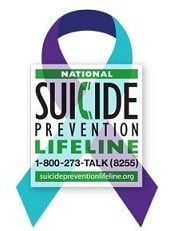Successful recoveries bring change and growth—and so do stressful situations that cannot or should not be avoided. These situations pose dangers for a recovering addict, who simply can’t afford to become overwhelmed by them.
Usually, we can see stressful situations heading our way well before they arrive. Actually, one reason they are so stressful is although we saw them coming early enough, we didn’t do much more than worry (or try to “imagine” them away) until they were right on top of us. When faced with these challenges, what’s needed are determination and strength. However, real strength means much more than merely being determined. It means being prepared.
Whenever a difficult situation looms on your horizon, applying the TIPS principles (below) can help you get through without resorting to drugs.TIPS refers to what you need to prepare yourself.
Truth
Need #1: be honest about how you’re feeling. Are you confused, afraid, ashamed, wanting to get high, wanting to hide or whatever? That’s OK. Share this with someone. Keeping things inside only adds to your stress and worry. Sharing with others brings them closer to you, helps relieve the bad feelings and also lets you more clearly see what you need to do.
Information
When your welfare is on the line, ignorance is not bliss. Ask yourself “what are the facts about this situation?” The who, what, when, where, how and why? When stressed and nervous, we neglect to gather accurate information—and our fears can distort reality. It’s much easier to cope when you know what you are coping with.
Priorities
Keep your priorities (or purpose) crystal clear. Priority one: Do not use drugs. Beyond that, in any tough situation, keep your goals and expectations simple and do-able. For example, if you’re uptight to begin with, you can’t go to a party and realistically expect to act cool, talk intelligently, dance like a star, pick up a date—and not drink or get high. So if crowded parties are tough for you, just staying clean and meeting a new positive person makes a lot more sense. Decide in advance what’s most important and focus on just those few things.
Support
Use your support network: group members, your counselor, NA sponsor, clean friends and/or family members. Share your needs and concerns. Ask their advice. If an upcoming situation or event is going to be really tough? Ask someone to be there with you. Think you might be really emotional afterward (either very happy or very sad)? Ask someone to be with you then, too. Bottom line is: you don’t have to face a troubling situation alone.






